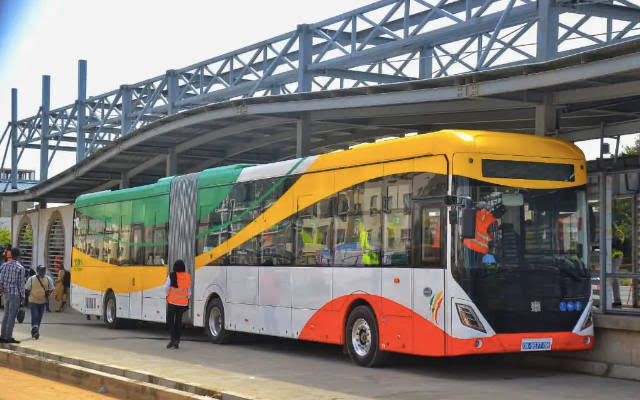The e-mobility sector in Africa is poised for a significant transformation, but it needs a solid foundation of clear government policies to truly thrive. This was the consensus among experts at Africa’s Green Economy Summit in Cape Town, where the theme of “Navigating Africa’s e-mobility transformation” took center stage. Celeste Vogel, CEO and Co-Founder of eWAKA in Kenya, highlighted e-mobility and smart mobility as critical for reducing carbon emissions by up to 30% across the continent.
African cities are grappling with severe traffic congestion and air pollution, presenting a daunting challenge for urban planners and investors alike. Vogel emphasized the transformative potential of multi-modal electric transport solutions, including cars, buses, trains, and even tuk-tuks, in mitigating climate impact and alleviating congestion. Lusanda Madikizela, Head of Zero Emission Freight Transport at C40 Cities in South Africa, pointed out the government’s vital role in setting a vision for the mobility sector’s transformation. “Manufacturers, operators, and financiers need policy certainty and the right kind of incentives to invest confidently in e-mobility,” she stated, underscoring the importance of government leadership in ensuring a smooth transition to electric vehicles (EVs).
In a positive development for South Africa’s e-mobility sector, Finance Minister Enoch Godongwana announced incentives for EV production and consumption as part of the country’s Electric Vehicles White Paper during the Budget Speech. The plan includes an investment allowance for new investments in electric and hydrogen-powered vehicles starting March 1, 2026, allowing producers to claim 150% of qualifying investment spending in the first year. This incentive is in addition to the existing support under the Automotive Production Development Programme, with the government also reallocating R964 million over the medium term to support the electric vehicle transition.
Thabang Mahlangu, Sector Lead at Netbank CIB, highlighted the challenges of transitioning to e-mobility in emerging markets, including Africa. He noted that while countries like those in Scandinavia have the infrastructure to ban internal combustion engine vehicles, Africa might only see such a ban in a generation or two. Mahlangu emphasized the journey to “net-zero, not zero,” acknowledging the continued coexistence of fossil fuel technologies alongside electric and hydrogen solutions.
Malle Fofana, Head and Africa Regional Director at the Global Green Growth Institute (GGGI), pointed out funding and infrastructure challenges in the e-mobility sector. For example, Uganda’s lack of charging infrastructure has limited the production of e-buses. He also noted that geographical location affects the growth of the e-mobility market, with East Africa having an advantage over West Africa due to lower import costs. Fofana stressed the need for government-led policy direction, with the private sector and local financial institutions playing significant roles in the transition.
The conversation around e-mobility in Africa needs to encompass new energy vehicles beyond just electric options, according to Tshepo Kgobe, CEO of the Gautrain Management Agency. His organization has invested in buses capable of transitioning between hydrogen, electric, and diesel technologies, preparing for a future of diverse energy sources. Kenya stands out for its progress in electrifying public transport, with companies like BasiGo leading the charge. Jonathan Green, Co-Founder and CFO of BasiGo, shared the company’s goal to decarbonize public transport in Sub-Saharan Africa. With plans to expand its fleet to 1,000 buses by 2026, BasiGo aims to significantly reduce CO2 emissions.
Cape Town Mayor Geordin Hill-Lewis announced an R8.5 billion expansion plan for the MyCiTi bus system, with a focus on electrification and dedicated lanes for e-buses. This investment underscores the city’s commitment to sustainable public transport and the necessary charging infrastructure to support it. As Africa stands on the brink of an e-mobility revolution, the need for clear policy direction and government support has never been more critical. With the right policies and incentives in place, the continent can overcome the challenges of transitioning to electric and new energy vehicles, paving the way for a greener, more sustainable future.



